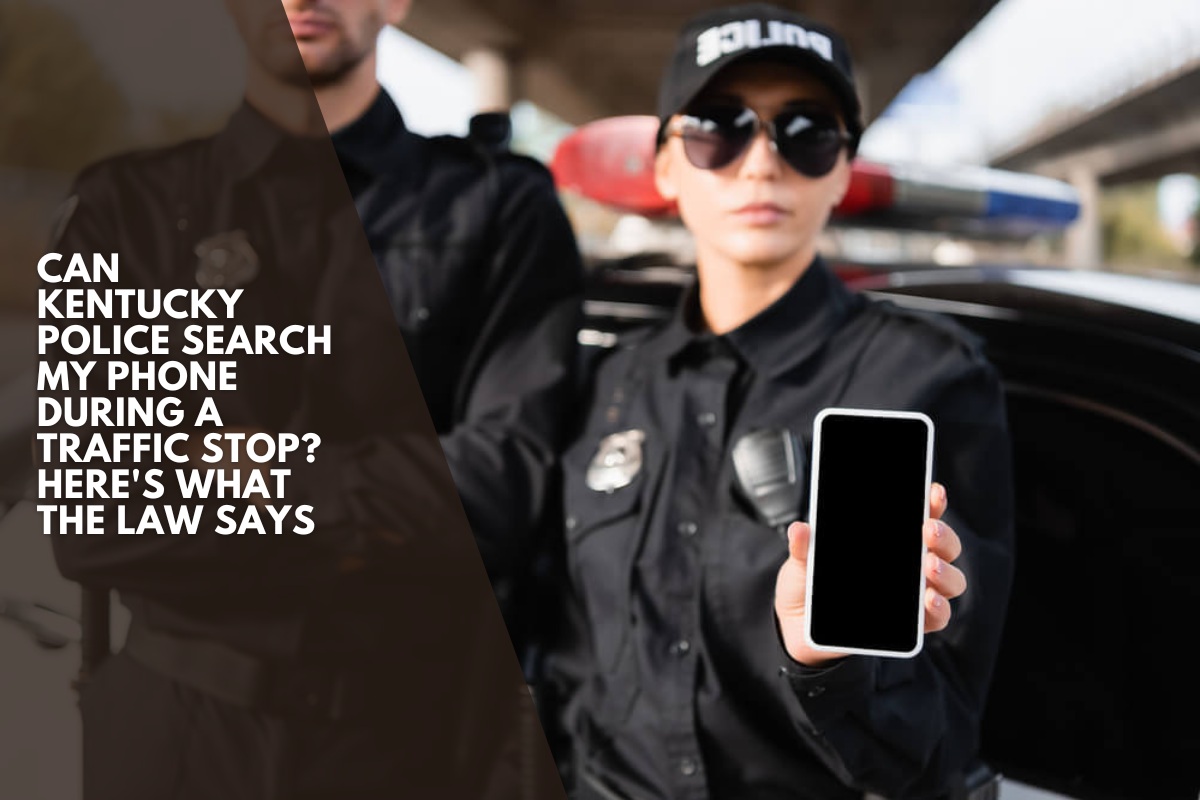When you get pulled over in Kentucky for a traffic stop, you might wonder whether police can search your phone without your permission or a warrant. The issue of cellphone searches during traffic stops is complex, governed by both state and federal laws focused on privacy and constitutional protections.
Fourth Amendment Protections and the Need for a Warrant
Under the Fourth Amendment to the U.S. Constitution, police generally need a search warrant supported by probable cause to search the contents of your cellphone. This principle was solidified by the U.S. Supreme Court in 2014 (Riley v. California), recognizing that cellphones hold extensive private information that deserves strong privacy protections.
In Kentucky, law enforcement cannot simply search your phone during a traffic stop without your consent or a warrant. If they want to search your phone and you don’t give permission, officers usually must obtain a search warrant from a judge based on probable cause—reasonable grounds to believe evidence related to a crime is on the phone.
Exceptions to the Warrant Requirement
There are limited exceptions when police can conduct a warrantless search of your phone:
Consent: If you voluntarily consent to a search of your phone, police do not need a warrant. However, you have the right to refuse consent, and it is generally advisable not to consent without a lawyer present.
Exigent Circumstances: In rare, emergency situations where there is an immediate risk of danger or loss of evidence (such as a phone being remotely wiped, or if accessing the phone can prevent a serious crime), police may conduct a limited search without a warrant. But these exceptions are narrowly defined and subject to legal scrutiny.
Searching Phone Data During a Traffic Stop
During a routine traffic stop, police may ask to look inside your vehicle or question you, but searching your phone is treated differently. Because cellphones contain vast amounts of personal data, courts are cautious about allowing searches without proper legal procedures.
If an officer wants to seize your phone at a traffic stop—for example, if they believe it may contain evidence of a crime—they may take it but usually cannot search its contents without a warrant unless one of the exceptions applies.
Kentucky’s Recent Privacy Laws and Future Protections
Kentucky is advancing its privacy protections with comprehensive data privacy legislation coming into effect in 2026. While this law mainly targets businesses handling personal data, it reflects a growing emphasis on protecting personal digital information, including how such data is accessed by law enforcement.
What You Should Do if Stopped by Police in Kentucky
Do not consent to a phone search without consulting a lawyer. You have the constitutional right to refuse.
Know your rights: Police must have probable cause and typically a warrant to search your phone.
Ask if you are free to leave: If stopped, clarify this respectfully before answering questions.
Contact a lawyer: If your phone is searched without a warrant or consent, speak with a criminal defense attorney to protect your rights.
Summary
Kentucky police generally cannot search your phone during a traffic stop without a warrant or your explicit consent.
Consent and exigent circumstances are the two major exceptions allowing limited warrantless searches.
The 2014 U.S. Supreme Court ruling protects cellphone data as requiring strong Fourth Amendment safeguards.
Kentucky’s evolving privacy laws indicate increasing attention on digital privacy rights.
Always assert your right to refuse consent and seek legal counsel if you believe your rights are violated.
Understanding your rights around phone searches during traffic stops in Kentucky helps you protect your privacy and avoid unlawful searches.
This legal landscape aims to balance law enforcement needs with citizens’ constitutional privacy protections in an age where a cellphone contains as much personal information as a home or office.
Sources
[1] https://www.hoffmanlawyer.com/your-rights-during-a-traffic-stop-in-kentucky/
[2] https://www.sbwhlaw.com/blog/in-the-news-cell-phone-searches-by-the-police.cfm
[3] https://scholarship.law.edu/cgi/viewcontent.cgi?article=1137&context=scholar
[4] https://adamstotts.com/what-are-your-rights-during-a-traffic-stop/
[5] https://supreme.justia.com/cases-by-topic/search-seizure/











